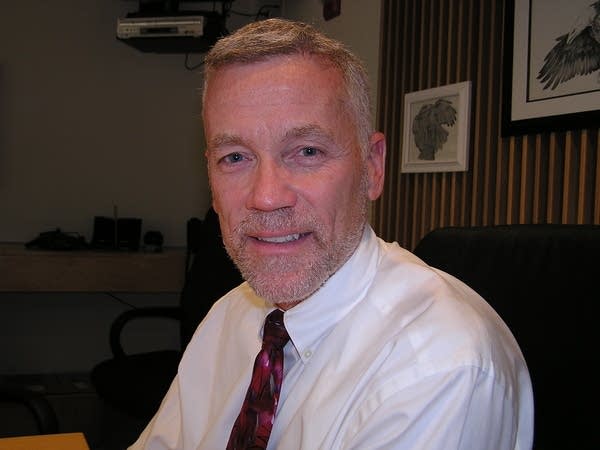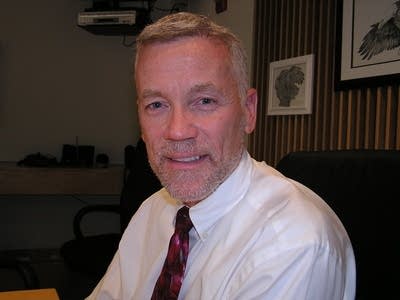Fusion centers protect us, but at what cost?
Go Deeper.
Create an account or log in to save stories.
Like this?
Thanks for liking this story! We have added it to a list of your favorite stories.

Police have always had the authority to ask us what we're doing if our behavior is suspicious.
These days with heightened awareness of terrorism if a police officer sees someone taking picture after picture, for example, of the underside of the new I-35W bridge in Minneapolis they are likely going to draw the attention of police. The picture taker may be asked to identify himself, says Minneapolis police department information sharing and analysis center supervisor Lt. Rick Duncan.
The person's identifying information may then be sent to Minnesota's fusion center, MNJAC, in downtown Minneapolis at the regional FBI offices for sharing with others.
"We can send that around to all 50 fusion centers and say, 'Hey, have you seen any similar patterns, has there been an increase in this type of a pattern, should we be more aware of this type of activity?' and we get feedback from that," Duncan says.
Turn Up Your Support
MPR News helps you turn down the noise and build shared understanding. Turn up your support for this public resource and keep trusted journalism accessible to all.
The investigation of the September 11th terrorist attacks revealed the piecemeal state of this country's information sharing among law enforcement.

The BCA's Michael Bosacker directs MNJAC.
"(Before 9/11) there were entities that had bits and pieces of information that if they would have it all together would have put a complete puzzle together of what was going on," he says.
Fusion centers were started by Homeland Security seven years ago. They fuse or gather and analyze information from lots of different sources - federal, state and local governments and the private sector - for signs of terrorist activity.
However, domestic terror activity has been scant. So, fusion centers including Minnesota's have expanded their research. They now gather and analyze information about all criminal activity.
Fusion centers operate in every state and some have several. Attorney John Verdi, the head of the Open Government Project for the Electronic Privacy Information Center, a Washington, D. C.-based research group worries about who is watching the activities of the fusion centers.
"There really is a broad reach here and it really is one of the most significant developments on the surveillance horizon," he says.

Homeland Security guidelines encourage fusion researchers to probe financial, medical, internet, email and video surveillance information, Verdi says.
Some of that information, including medical records, are protected by federal privacy laws. Even so the reach of the fusion centers worries even people in government.
The Government Accountability Office and the Congressional Research Service have told Congress the oversight of fusion centers is lax and needs more attention.
However, oversight may not be easy.
The actual operation of fusion centers is in the hands for the most part of state law enforcement officials.
Minnesota's fusion center policy protecting privacy was created with the advice of a nine member committee, according to Bureau of Criminal Apprehension Superintendent Tim O'Malley. The committee members include law enforcement, civil libertarians and first amendment advocates.
The process was open, O'Malley says.
"Everybody has their input in this and there is no smokefilled back room, it just isn't there," he says.
One of the privacy committee members is Chuck Samuelson, the executive director of the Minnesota Chapter of the American Civil Liberties Union. Samuelson opposes fusion centers.
The temptation they create is the power to gather information that can be used to blackmail, threaten or otherwise subvert political adversaries, he says.
"I believe that it is inevitable that people like that would be attracted to that sort of mother lode of power over people, and make no mistake about it information is power," he says.
The BCA hired veteran state public defender Robert Sykora to advise them on fusion center practices. Fusion center staff are warned against abuse of their power, he says.
"You have to have a specific suspicion that illegal behavior is occurring. You can't go out and phish information about your neighbor or about that guy with a different skin color than yours because you're curious," he says.
Under Minnesota law we have the right to see the information fusion center staff may gather about us but only after an investigation is closed.
The BCA says so far four requests for data have been filed.
Minnesota's fusion center continues to be funded by grant money. The 58 U. S. fusion centers are mandated by Homeland Security which supplied more than $250 million in startup money.
BCA officials say it's not clear at this point if Minnesota's Joint Analysis or fusion center will be part of the governor's budget request in the next legislative session.





